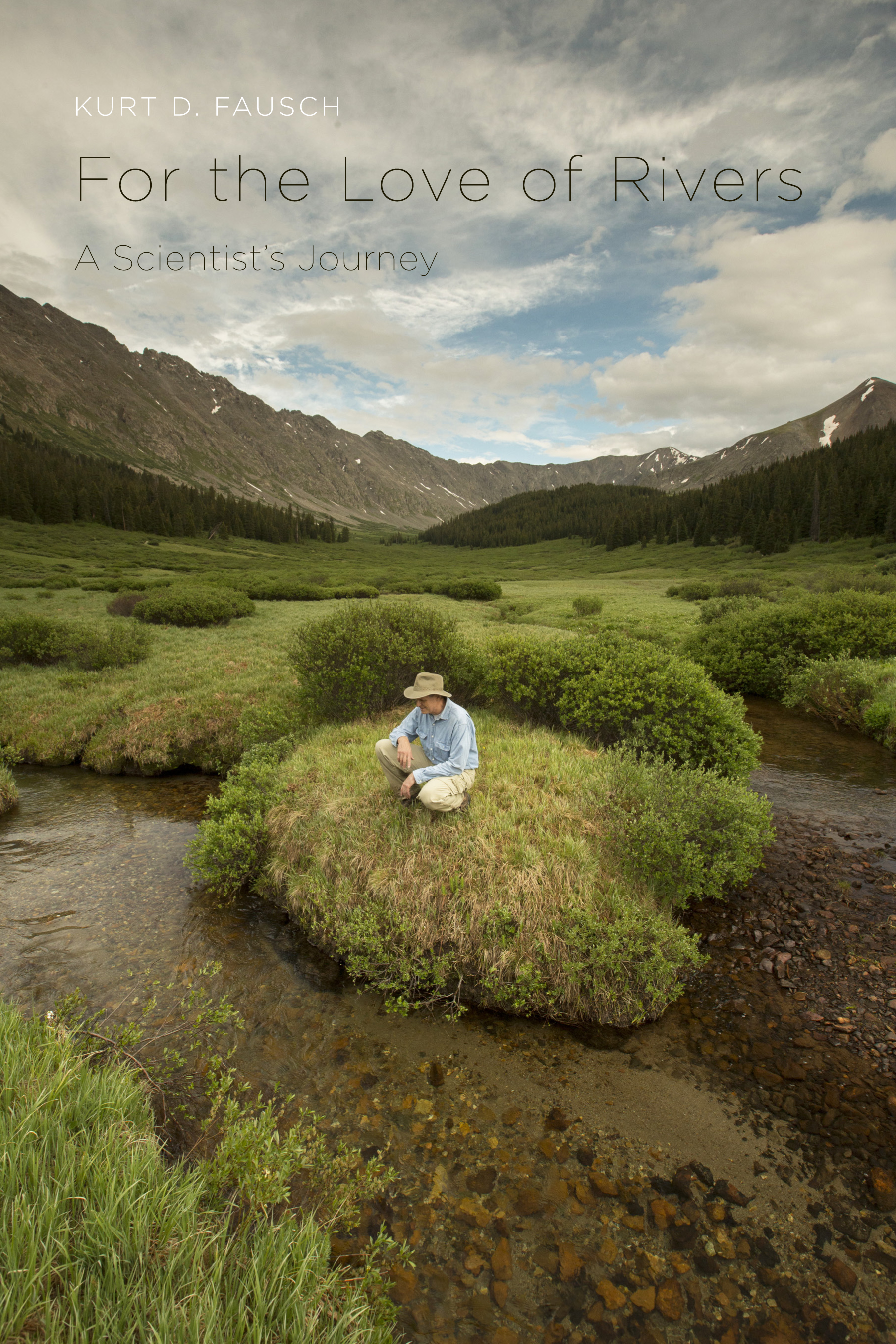Books represent large undertakings. The writing
process is arduous, the time lengthy, and the research often difficult, even
dangerous. So what leads authors to pour their hearts and souls into such
laborious work? Author Kurt Fausch joins us today to share what drove him to
create his recently published book, For
the Love of Rivers. Staying true to his scientific background, yet
venturing into the connection between nature and emotion, Fausch offers his
audience a book that reads much like a journey—and today, he invites us to come
along.
--------------------------
Why would a scientist
write about love for rivers? Don’t
scientists normally stick to the facts?
I became a fish biologist,
and later a professor of stream ecology, so that I could do the studies needed
to provide answers for the field biologists and natural resource stewards who
manage fish and the streams and rivers they inhabit. Along with teaching students about these ideas, and working
together with graduate students and other researchers on these studies, this is
really all I ever wanted to achieve.
Somehow, along the way, I
became drawn into a deeper relationship with the streams and rivers I was
studying, the colleagues I was working with, and the need to communicate both
the science and these emotions to others.
In For the Love of Rivers: a Scientist’s Journey, I draw the reader
into an international research  collaboration with Japanese stream ecologist
collaboration with Japanese stream ecologist
Shigeru Nakano and his colleagues.
Nakano and I developed a deep friendship fueled by a common passion to
immerse ourselves in streams, literally (by snorkeling), and understand how the
native charr and trout in northern Japan and northern Montana coexisted in the
same habitats in streams without driving each other extinct.
Shigeru went on to do
brilliant large-scale field experiments covering streams with mesh greenhouses to
show how the insects emerging from streams into the riparian forest, and those
falling into streams from the forest, created key connections that fed animals
in both ecosystems. Cutting these
off with the greenhouses made half the fish in the stream, and most of the bats
and spiders in the riparian forest, disappear!
But when Nakano was killed
while visiting the field site of another scientist in Baja California, it set
me back and I began to ask what was most important in my busy life as a
researcher and teacher. The loss
of streams and fish that we were recording in several other studies, and our predictions
of what we stand to lose based on those studies, loomed large in my thinking.
One day, out of the blue,
former student-turned-filmmaker Jeremy Monroe (founder of Freshwaters
Illustrated) approached me about making a documentary film on Nakano’s life and
amazing career. His idea was to
draw the public into an engaging story, and teach them about how streams, fish,
and their strong linkages with riparian forests work. I was skeptical at first, but after the film had been beamed
to more than 100 million homes on PBS stations, I realized the power of stories
that include the emotional connections among scientists in capturing the
attention of everyday people and providing a means to communicate complex
science. I decided to write my story
-- of streams and the scientists who study them.
But when I thought about
what would move people to actually want to conserve these beautiful ecosystems,
I realized that I needed to move beyond the science of streams, and even the
science of why humans are attracted to the sights and sound of running
waters. Stephen Jay Gould, the
famous evolutionary biologist and great communicator of science, wrote that we
only save those things that we love, and we only love those things with which
we develop a deep emotional bond.
In the end, I needed to
take the risk to explore what it is that I
love about rivers, even as a scientist who has been trained to study them
objectively and focus on the cold, hard facts. While not ignoring the importance of science to conserving
rivers, I realized that I needed to move beyond this science
if I wanted to inspire others to keep striving to understand what is essential
about rivers to us as humans, and keep working with others to conserve them.
--------------------------
Kurt Fausch is a professor in the Department of
Fish, Wildlife, and Conservation Biology at Colorado State University, where he
has taught for more than 30 years. Collaborative research has taken him
throughout Colorado, much of the western U.S., and worldwide, including to
Hokkaido in northern Japan. A recipient of numerous awards from the American
Fisheries Society and the World Council of Fisheries Societies, Fausch is a
respected professional in his field. For
the Love of Rivers is now available on our website or by calling 1 (800)
621-2736. Watch a full trailer for the book here.
